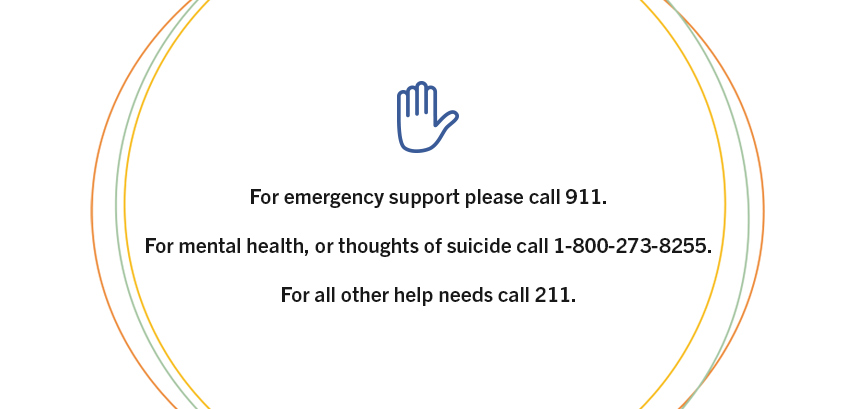Today marks World Teen Mental Wellness Day. The goal of this day is to highlight and understand the mental health issues that impact youth and their families as well as to celebrate their resilience in the face of adversity. One in five teenagers experiences a serious mental health condition. 49.5% of adolescents ages 13-18 have a mental disorder, however many of these issues go undiagnosed. Tragically, suicide is the leading cause of death among adolescents ages 15-19.
COVID-19 has made these issues more apparent than ever. Caregivers can offer support to teens in a variety of ways here are some suggestions from the Centers for Disease Control:
- Recognize and address fear and stress: Adolescence is a time of big changes. Adolescents can be particularly overwhelmed when stress is related to a traumatic event, expressed as excessive worry or sadness, unhealthy eating or sleeping habits, and difficulty with attention and concentration. Adults can provide stability and support to help them cope, as well as facilitate access to professional help and distress emergency hotlines, as needed.
- Teach and reinforce everyday preventive actions: There are actions we can take to protect others, prevent getting sick and slow the spread of COVID-19. Encourage adolescents to be good role models— if they wash their hands often, stay at least 6 feet apart from others, and wear their masks in public spaces to help protect themselves and others, then younger children – and even their peers – are more likely to do the same.
- Help keep adolescents children healthy: Teach adolescents the importance of taking care of their health. Engage them in scheduling routine check and immunizations visits. Ensure continuity in their mental health and occupational health care. Encourage them to eat healthy, drink water – instead of sugar sweetened beverages – for strong teeth, be physically active, or learn something new. It can help them stay healthy and focused.
- Help adolescents stay socially connected: Encourage adolescents to reach out to friends and family via phone, video chats, social media, or even via video games. Schools may have tips and guidelines to help support their social and emotional needs.
Makin’ It Happen is also here to help support the mental wellbeing of youth in our communities. Makin’ It Happen provides training for youth including suicide prevention and mental health training programs. QPR-Question, Persuade, and Refer is a nationally renowned evidence-based suicide prevention program. QPR is a 1-to-2-hour training that helps adolescents understand how to help a friend who may be in crisis with suicide and/or their mental health. QPR does not teach them to diagnose or give treatment but gives teens tools to recognize the warning signs of a friend who may be struggling. QPE provides training in order for the teen to learn how to safely ask questions, persuade their friend to get help, and refer that friend to a trusted adult or professional to get the help they need.
Another wonderful program is Teen Mental Health First Aid (tMHFA) which is taught to high school students of grades 10-12. tMHFA teaches youth the skills they need to have supportive conversations with their friends and how to get help from a responsible and trusted adult. This can be taught in 6- 45-minute sessions or 3-90 minutes (about 1 and a half hours) session. tMHFA does not teach students to diagnose or give treatment but to help them refer to a trusted adult and or professional when a friend is in crisis.
Makin’ It Happen is fortunate to offer these great programs for our youth and young adults in the Greater Manchester region.



